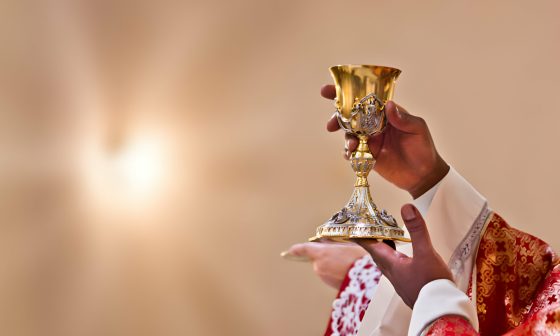The concept of the Holy Spirit is deeply rooted in various religious traditions, including Christianity, where it holds significant theological importance. However, when it comes to Islam, the belief in the Holy Spirit takes on a different interpretation. Let’s explore the Islamic perspective on the Holy Spirit and whether Muslims believe in its existence.
Yes, Muslims believe in the concept of the Holy Spirit, known in Arabic as “Ruh al-Qudus.” In Islamic theology, the Holy Spirit is viewed as a divine entity that serves as a source of guidance and inspiration, particularly in the transmission of Allah’s message to the prophets. While the Islamic understanding of the Holy Spirit differs from that of Christianity, it remains an integral part of Islamic belief. The Holy Spirit is often associated with the Angel Gabriel (Jibril), who is believed to have conveyed Allah’s revelations to the Prophet Muhammad (peace be upon him), including the Quran. Therefore, Muslims acknowledge the existence and significance of the Holy Spirit within the framework of their faith and its role in divine communication and guidance.
Understanding the Holy Spirit in Islam
In Islamic theology, the Holy Spirit is referred to as “Ruh al-Qudus,” which translates to “the Spirit of Holiness” or “the Pure Spirit.” The Holy Spirit is mentioned several times in the Quran, where it is associated with divine revelation and guidance. According to Islamic belief, the Holy Spirit is not a separate entity or part of the Godhead but is instead considered a manifestation of Allah’s power and will.
Role of the Holy Spirit in Islam
In Islam, the Holy Spirit is primarily associated with the transmission of divine revelation to the prophets. Muslims believe that the Angel Gabriel, known as Jibril in Arabic, served as the intermediary through whom Allah communicated with His messengers, including Prophet Muhammad (peace be upon him). It is through the Holy Spirit that the Quran, the central religious text of Islam, was revealed to Prophet Muhammad over a period of approximately 23 years.
Islamic References to the Holy Spirit
The Quran mentions the Holy Spirit in several verses, emphasizing its role in delivering divine guidance to the prophets and facilitating communication between Allah and humanity. One notable verse that mentions the Holy Spirit is found in Surah Al-Nahl (The Bee), where it states:
“And We sent down to you (O Muhammad) the Book (the Quran) with truth, confirming the scripture that came before it and superseding it. So judge between them according to what Allah has sent down, and do not follow their whims and desires diverging from the truth that has come to you. For each of you, We have decreed a divine law and a traced-out way. Had Allah willed, He could have made you one community, but He intended to test you through what He has given you. So compete in righteousness. To Allah you will all return, and He will inform you regarding the matters you differed about.” (Quran 16:13)
Belief in the Holy Spirit among Muslims
Muslims believe in the existence of the Holy Spirit as an integral part of their faith, primarily in the context of divine revelation and prophethood. While the concept of the Holy Spirit may differ in its theological interpretation between Islam and Christianity, it remains a fundamental aspect of Islamic belief, emphasizing the role of divine guidance and inspiration in shaping religious understanding.
Do Muslims believe in miracles
Yes, Muslims believe in miracles as a fundamental aspect of their faith. Miracles, known as “mu’jizat” in Arabic, are extraordinary events or occurrences that defy the laws of nature and serve as signs of divine intervention. In Islamic belief, prophets and messengers sent by Allah (God) were granted miracles to affirm their authenticity and to provide evidence of their divine mission. The most significant miracle in Islam is the Quran itself, which is considered the ultimate miracle given to the Prophet Muhammad (peace be upon him). Other miracles mentioned in Islamic tradition include the parting of the sea by Prophet Moses (peace be upon him), the healing of the sick by Prophet Jesus (peace be upon him), and the splitting of the moon by the Prophet Muhammad (peace be upon him). Muslims view these miracles as demonstrations of Allah’s power and mercy, affirming the truth of the message conveyed by His chosen messengers. Therefore, belief in miracles is an integral part of Islamic faith and theology.
Does Islam believe in speaking in tongues
In Islam, the concept of speaking in tongues, as commonly understood in some Christian traditions, is not explicitly mentioned or practiced. Speaking in tongues, also known as glossolalia, refers to the phenomenon where individuals speak in a language unknown to them, often believed to be a spiritual or divine language.
In Islamic belief, communication with Allah (God) and supplication (du’a) is primarily done in one’s known language. Muslims believe that Allah understands all languages, and they are encouraged to pray and communicate with Him in their native tongue. The Quran, which is considered the word of Allah revealed to Prophet Muhammad (peace be upon him), was revealed in classical Arabic, and it serves as the primary source of guidance and communication between Muslims and their Creator.
While Islam does not have a tradition of speaking in tongues in the same manner as some Christian denominations, it does emphasize the importance of sincerity and devotion in prayer. Muslims are encouraged to pray with humility, sincerity, and devotion, focusing on the meaning and significance of the words they utter in their prayers. The emphasis is on understanding and internalizing the prayers rather than speaking in an unintelligible language.
In summary, while Islam does not have a specific practice of speaking in tongues, Muslims believe in communicating with Allah through sincere supplication in their known language. The focus is on understanding and internalizing the prayers rather than speaking in a language unknown to the individual.
Who is the holy spirit in islam
In Islam, the concept of the Holy Spirit differs from that in Christianity. The Holy Spirit, known as “Ruh al-Qudus” in Arabic, is understood to be an angel created by Allah (God) and is not considered a separate entity or part of a Trinity as in Christian theology. In Islamic belief, the Holy Spirit plays a significant role in conveying Allah’s revelation to the prophets.
The Holy Spirit is often associated with the angel Gabriel (Jibril in Arabic), who is considered the messenger angel responsible for delivering Allah’s revelations to the prophets, including Prophet Muhammad (peace be upon him). According to Islamic tradition, it was the Holy Spirit, in the form of Gabriel, who revealed the Quran, the holy book of Islam, to Prophet Muhammad over a period of 23 years.
The Quran mentions the Holy Spirit in several verses, emphasizing its role in delivering Allah’s messages to the prophets. For example, in Surah Al-Nahl (Chapter 16), Verse 102, it is stated: “Say, [O Muhammad], ‘The Pure Spirit has brought it down from your Lord in truth to make firm those who believe and as guidance and good tidings to the Muslims.'”
In summary, in Islam, the Holy Spirit is understood as an angel, specifically Gabriel, who serves as the messenger of Allah and is responsible for delivering divine revelations to the prophets, including the Quran to Prophet Muhammad. Unlike in Christianity, the Holy Spirit in Islam is not considered a separate divine entity or part of a Trinity but rather a created being fulfilling the role of conveying Allah’s messages.
Conclusion
In conclusion, while the concept of the Holy Spirit may hold different theological implications in Islam compared to Christianity, Muslims do believe in the existence of the Holy Spirit as an essential aspect of divine revelation and guidance. The Holy Spirit, known as Ruh al-Qudus in Islam, plays a crucial role in delivering Allah’s message to the prophets and facilitating communication between the Creator and His creation.
FAQs (Frequently Asked Questions)
- Do Muslims worship the Holy Spirit?
- No, Muslims worship Allah alone and do not attribute partners to Him, including the Holy Spirit.
- What role does the Holy Spirit play in Islamic belief?
- The Holy Spirit is understood as a divine entity closely associated with God’s power and revelation, conveying messages to prophets.
- Are there differences in how Sunni and Shia Muslims view the Holy Spirit?
- While there may be variations in interpretation, both Sunni and Shia Muslims believe in the existence and significance of the Holy Spirit.
- Can Muslims receive guidance from the Holy Spirit?
- Yes, Muslims believe in seeking guidance from God through prayer and supplication, trusting in His wisdom and providence.
- How can non-Muslims respectfully engage with Muslims about their beliefs regarding the Holy Spirit?
- Non-Muslims can engage in respectful dialogue, asking questions with genuine curiosity and seeking to understand Islamic perspectives with empathy and respect.






One comment
You have made some good points there. I looked on the internet for more information about the issue and found most individuals will go along with your views on this website.